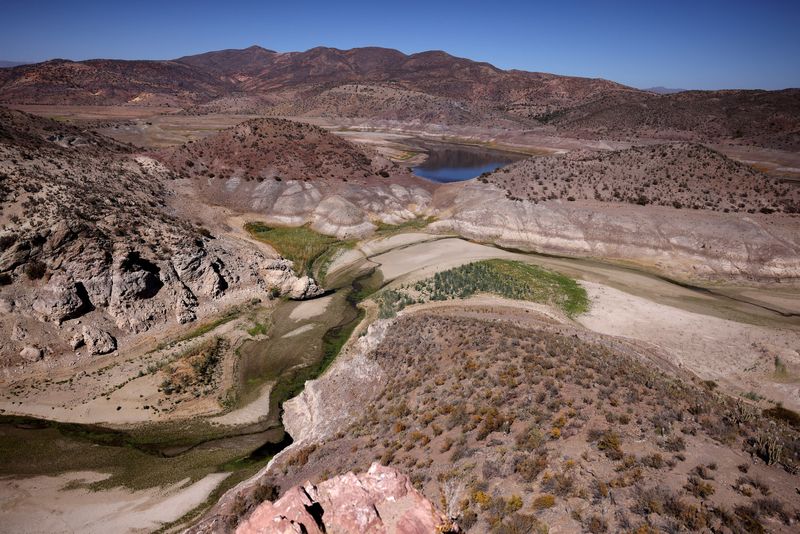By Simon Jessop and Pesha Magid
RIYADH (Reuters) - Restoring the world's degraded land and holding back its deserts will require at least $2.6 trillion in investment by the end of the decade, the U.N. executive overseeing global talks on the issue told Reuters, quantifying the cost for the first time.
More frequent and severe droughts as a result of climate change combined with the food needs of a rising population meant societies were at greater risk of upheaval unless action was taken, Ibrahim Thiaw said ahead of talks in Riyadh this week.
The two-week meeting aims to strengthen the world's drought resilience, including by toughening up the legal obligations of states, laying out strategic next steps and securing finance.
A large chunk of the around $1 billion a day that is required will need to come from the private sector, said Thiaw, who is Executive Secretary of the United Nations Convention to Combat Desertification (UNCCD).
"The bulk of the investments on land restoration in the world is coming from public money. And that is not right. Because essentially the main driver of land degradation in the world is food production... which is in the hands of the private sector," Thiaw said, adding that as of now it provides only 6% of the money needed to rehabilitate damaged land.
"How come that one hand is degrading the land and the other hand has the charge of restoring it and repairing it?," said Thiaw, whilst acknowledging the responsibility of governments to set and enforce good land-use policies and regulations.
With a growing population meaning that the world needs to produce twice as much food on the same amount of land, private sector investment would be critical, he said.
The talks in Saudi Arabia follow similar U.N. events in October on biodiversity and in November on climate change and plastics, where finance - or the lack of it - played a central role.
To hit $2.6 trillion - approaching the annual economic output of France - the world needs to close an annual gap of $278 billion, after just $66 billion was invested in 2022, the U.N. said.
LONG PROCESS
A U.N.-backed study released on Sunday said land degradation was "undermining Earth's capacity to sustain humanity" and failure to reverse it would "pose challenges for generations".
Land totalling around 15 million square kilometres - bigger than Antarctica - was already degraded, and was growing by about 1 million square kilometres each year, it added.
Getting agreement on hardening up the legal obligations of states, though, will be among the tougher deals to strike, Thiaw said, adding that some countries were "not ready to have another legally binding instrument" while others felt it was important.
While countries had already made commitments to protect around 900 million hectares of land, they needed to set a more ambitious target of 1.5 billion hectares and speed up the pace.

Failure to agree on steps to restore degraded land would ultimately hurt parallel U.N.-led efforts to rein in climate-damaging greenhouse gas emissions and protect biodiversity, Thiaw said, with agriculture accounting for 23% of greenhouse gas emissions, 80% of deforestation and 70% of freshwater use.
"The resources that we are talking about are not charity," Thiaw said, adding: "So it is important that we see this not as an investment for poor Africans, but as an investment that will keep the world balanced."